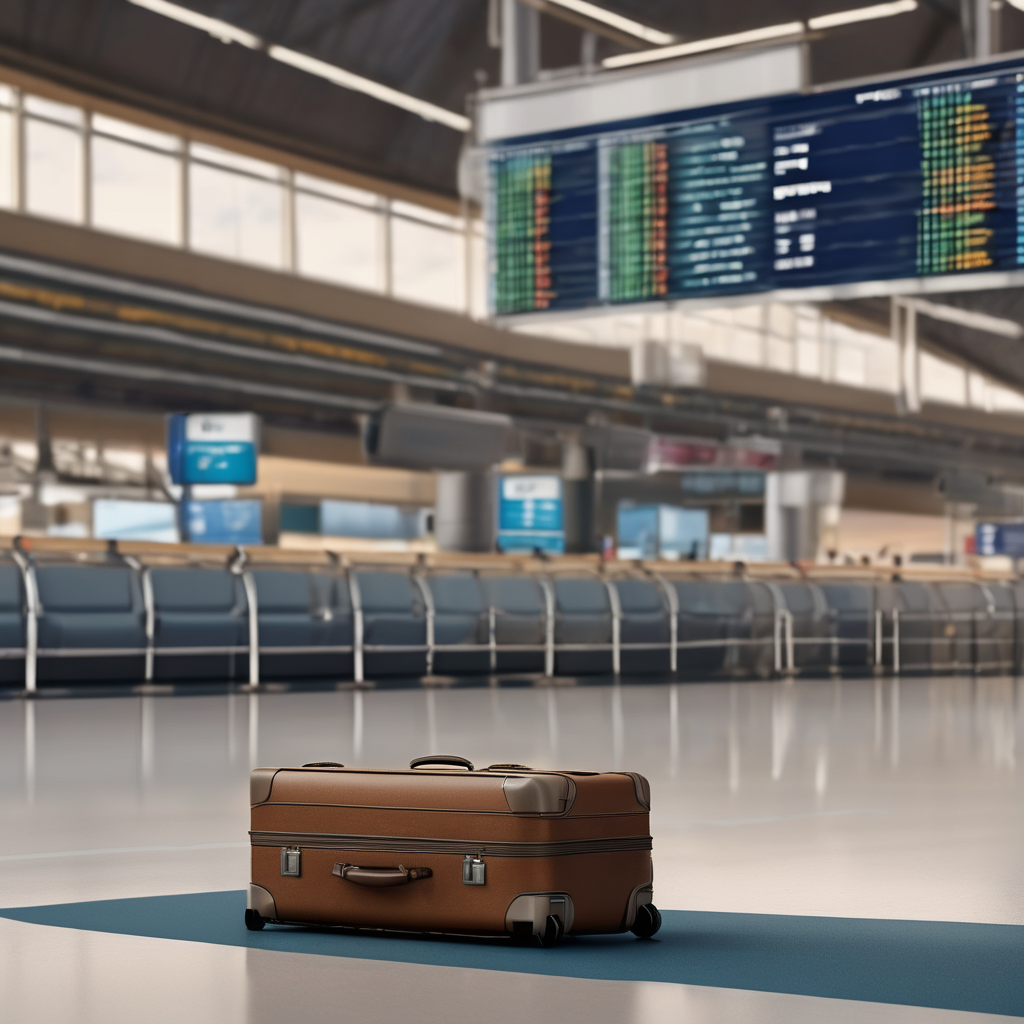Air traffic controller staffing shortages have reached a critical level as the government shutdown enters its fourth week, leading to significant travel delays and increased anxiety among airline passengers. Experts warn that the situation will likely worsen unless air traffic controllers, who are currently working without pay, receive compensation.
Since Friday morning alone, over 50 staffing shortages have been reported, impacting flights from Los Angeles to Washington, D.C. Controllers, essential workers under federal law, must fulfill their duties during the shutdown but have not received pay. This has raised concerns about their ability to cope with the demanding nature of the job. On Sunday, Los Angeles International Airport faced temporary flight halts due to staffing shortages at the Southern California TRACON, while a delay was reported at Reagan National Airport expected to last throughout the night.
Data reveals a troubling trend: since October 1, there have been at least 264 reports of staffing issues at FAA facilities, a stark increase compared to just 60 instances during the same period last year. Transportation Secretary Sean Duffy highlighted that controllers are increasingly “wearing thin” and calling in sick due to the financial strain imposed by the shutdown.
The current situation echoes a past government shutdown from December 2018 to January 2019, which lasted 35 days and was marked by significant disruptions in air travel. During that time, flight operations were critically impacted when a small number of air traffic controllers opted to stay home.
As a result of both staffing shortages and weather conditions, over 6,000 delays occurred across the U.S. on Sunday, with American Airlines reporting that nearly 27% of its flights were delayed. On the worst days since the shutdown began, more than 50% of delays have been attributed to air traffic control staffing problems, underscoring the fragility of the air traffic system.
Passengers have expressed growing unease regarding their travel plans. One traveler, Connie, described her experience as “flying today on sheer faith,” emphasizing that workers’ lack of compensation affects their performance. Another passenger, Dylan Cousins, called for an urgent end to the government shutdown, urging lawmakers to reach an agreement so federal operations can resume smoothly.
The critical nature of air traffic controllers’ roles cannot be overstated. At major airports like Hartsfield-Jackson Atlanta International Airport, which handles nearly 800,000 movements annually, the necessity for alert and available controllers is paramount for maintaining safety in the airways. The high demands of the job and the pressure of ensuring safe aircraft movements, especially in congested airspace, contribute to the ongoing staffing crisis.
The labor situation within the air traffic control workforce reflects a long-standing shortage exacerbated by challenging working conditions and intense stress. Experts suggest that the frustrations felt by air traffic controllers, coupled with their current financial hardships, could lead to increased absenteeism.
Should the government shutdown persist without resolution, experts predict more controllers may choose to call in sick rather than endure the ongoing strain of unpaid labor. “Flying is still safe,” remarked aviation safety specialist Chad Mourning, but travelers should anticipate longer wait times and plan accordingly.
The situation facing air traffic controllers is critical, and with no immediate solution in sight to rectify the federal funding lapse, the adjustments that travelers must make may continue to grow in the coming weeks.
